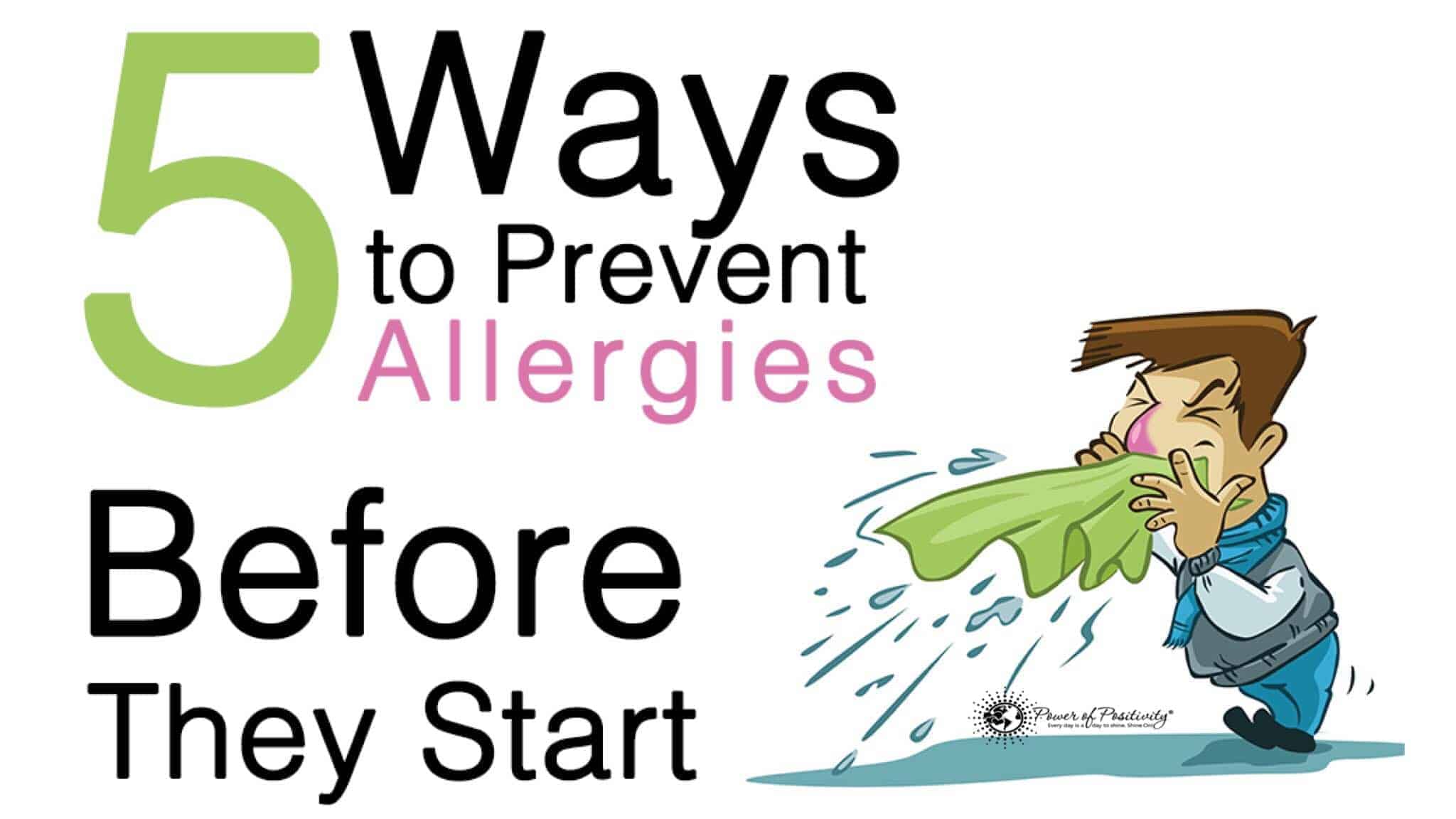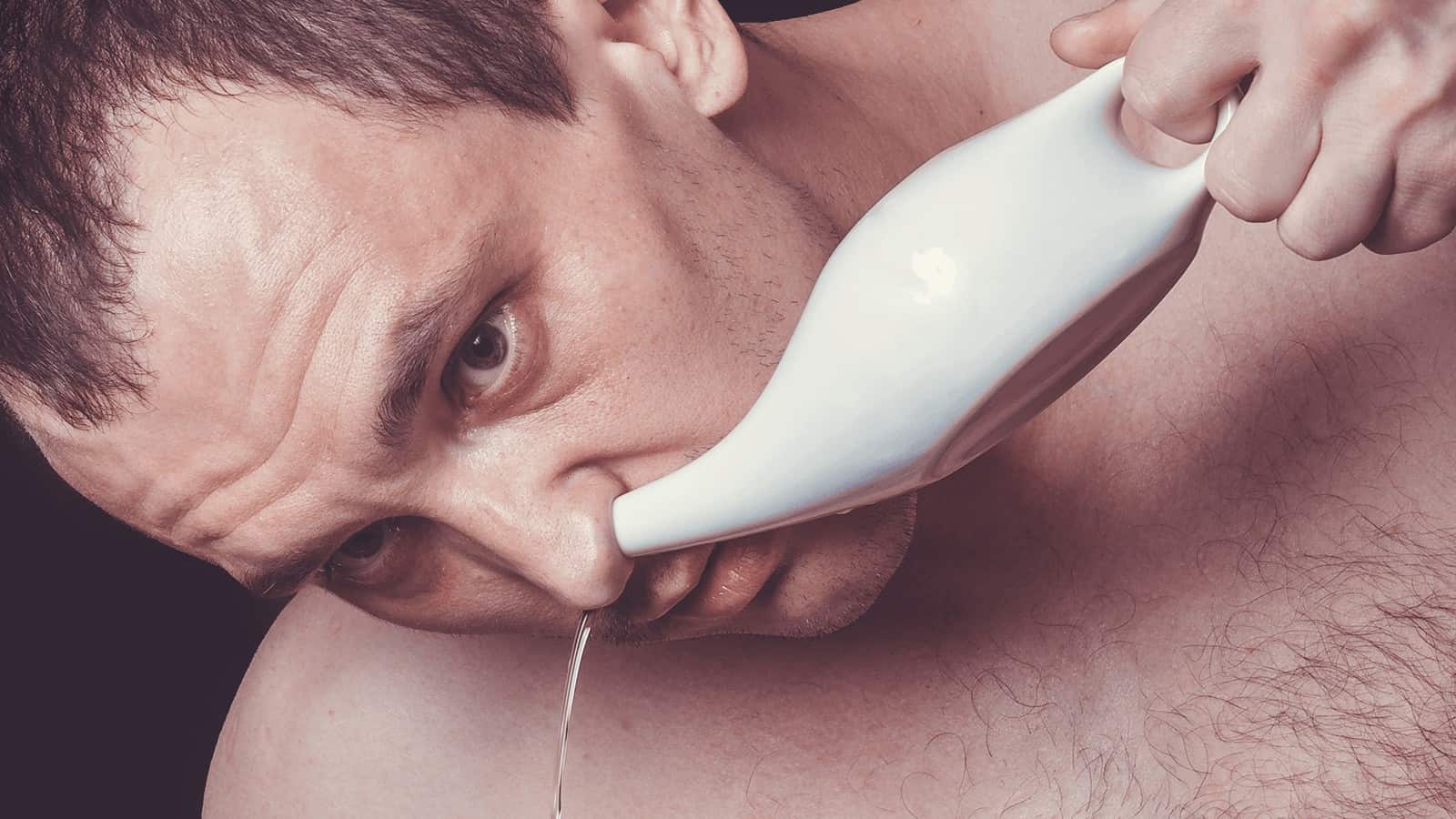Allergies affect millions of people around the world. While allergies are common and often seasonal, some people experience bothersome symptoms all year round and only wish they had clear allergies. Those that suffer allergic rhinitis, asthma, eczema, or food allergies might routinely receive medications to control the symptoms. However, drugs ranging from antihistamines to acetaminophen could also have side effects that impact a person’s general well-being.
Well, if you’ve been looking for ways to clear allergies naturally, here’s a great place to start. Instead of turning to medicines, here are some natural remedies to clear allergies.
Here Are 11 Easy Ways to Clear Allergies Naturally
“Talking about food allergies leads to educating people about what they have to do.” – Chef Amanda Freitag
1. Use a salt rinse solution daily.
If pollen causes your allergy, spritzing a salt rinse solution every day will help relieve the symptoms. In a clean container, mix three teaspoons of salt and one teaspoon of baking soda with eight ounces of sterilized water, which has been boiled and cooled. Spritz this on your nose before you start your morning. Some people use a Neti pot instead of a spritzer to gently inhale the salt rinse solution into their nostrils. A Neti pot can be bought at any drugstore and it’s deemed generally safe to help you clear allergies.

2. Use a dehumidifier.
If dust mites trigger your allergies, you’ll need a dehumidifier to keep these tiny critters at bay. Dust mites are invisible to the naked eye but they’re on your bedding, pillows, carpets, couch, and curtains, and they like a humid environment. Apart from a dehumidifier, you’ll need to clean and air out your bedrooms and bathrooms regularly to prevent dust mite growth. Wash your sheets with warm water to kill the allergy proteins and vacuum your carpets, curtains, and rugs at least once a month.
3. Eat fresh raw garlic to give your immune system a boost.
Garlic has antihistamine properties. If you eat chopped garlic mixed with a teaspoon or two of honey daily, you may see a decrease in allergic symptoms, as per a study. Honey, on the other hand, may help improve allergic rhinitis symptoms, according to another research (although some experts claim that its effects may be psychosomatic). Nevertheless, raw garlic would definitely taste better with honey, right?
4. Add stinging nettle leaf to your cup of tea or bowl of asparagus soup when hay fever season starts.
The use of stinging nettle (Urtica dioica) as medication for different ailments, including allergic rhinitis, dates to the medieval period.
5. Pop fish oil supplements.
Fish oil is rich in omega-3, which has anti-inflammatory properties, too. A study in the UK showed that pregnant women who took fish oil supplements for a month reduced their baby’s risk of developing food allergies in eggs as children. Some 22 percent of kids also lessened their risk of eczema development.
6. Cut down on cigarettes and avoid cigarette smoke.
As every doctor will tell you, second-hand smoke is still bad for non-smokers. In terms of allergies, it could cause watery eyes or a runny and stuffy nose. Avoid frequenting places where people smoke, such as bars and restaurants. If you’re the smoker, however, try quitting the habit now as smoke may not only aggravate asthma conditions, but also cause other health concerns.
7. Protect your eyes by using sunglasses.
Pollen and other airborne irritants could blow into your eyes and cause watering and itching, so make it a habit to wear sunglasses with a protective contour when you’re outside. If possible, wear wide-brimmed hats as well, especially when the sun is high.
8. Switch to organic hair dyes and grooming or beauty products.
There are plenty of allergens in the everyday products you use. Additionally, common preservatives in dyes and beauty products could worsen your allergic symptoms. Basically, if the products have a strong fragrance, it’s usually an indication that it’s packed with chemicals. Ditch those products and switch to products that use organic ingredients.
9. Try acupuncture.
A series of acupuncture treatments effectively helped a group of people who previously took antihistamines for their allergies (in a clinical trial conducted in 2013). Study author Dr. Benno Brinkhaus recommended the ancient healing technique for allergy sufferers who are no longer satisfied with conventional medications, especially since acupuncture has few side effects.
10. Get your gut tested.
If you’re still suffering from allergic reactions despite the medications and natural remedies, perhaps getting a better picture of what’s really happening to your body will help. The health of your gut impacts 70 percent of your immune system. Most seasonal allergies happen when the gut isn’t fully functioning or it’s hypersensitive to triggers from the environment. A gut test will require a laboratory examination of your stool. After receiving the results, you can alter your diet and start making lifestyle changes to improve your gut’s health.
11. Lessen the stress in your life and embrace more positive influences.
Surprisingly, stress was reported as the cause of allergy flare-ups for 39 percent of 179 employees in an Ohio State University study. Positive thinking and pursuing positive inclinations in your life might not directly clear allergies, but it will impact your body’s immunities to fight health problems.
Final thoughts on beating allergies
Symptoms of allergies vary with each case but the most common signs include itchy or watery eyes, runny or stuffy nose, sneezing, sore throat, cough, fatigue, and hives. Consulting a doctor for mild allergic reactions is recommended but not necessary, especially if you can mitigate the problems with natural treatments at home.
Care, however, must be given to treating severe allergic reactions, as this can lead to anaphylaxis. If you experience trouble breathing, tightness in the chest, or have vomiting episodes, you’ll need to seek medical attention immediately.




















